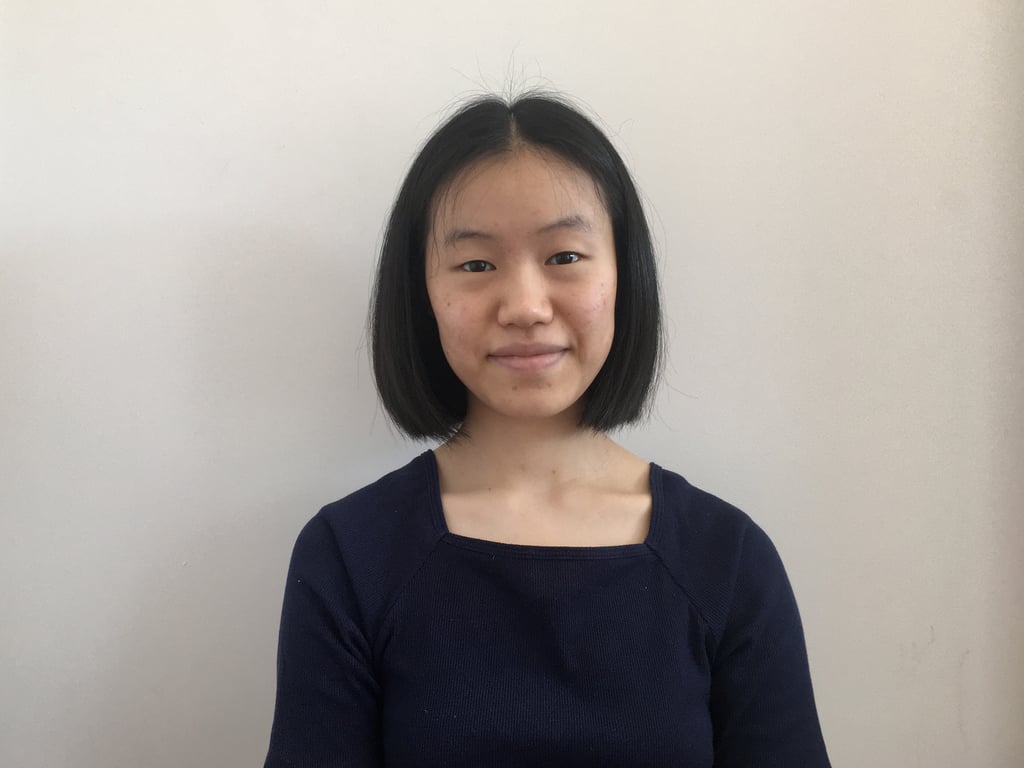Victoria Ngai is a UCL Medical student and has been volunteering with Age UK Islington to raise awareness about end of life care. She tells us what it's like to take a candid approach to the difficult topic of death and how it's offered her a wider perspective regarding her future career as a medic.

Tell us a little about your volunteering.
I have been volunteering with Age UK Islington on their Future Matters programme since last year, helping at events such as “Death Cafés” to raise awareness about end of life care planning and to encourage people to talk openly about death and dying. Planning for the end of life may sound grim, but knowing how we and older members of our family want to be cared for can have a huge impact on our/their wellbeing in the future. At the Death Cafés, I will sit with a group to facilitate the open discussion and, at the end of the session, share what was discussed with the rest of the room. So people walk away from the session with different ideas and stories that have hopefully made the end of life easier to think and talk about.
How did you find out about the role?
I browsed through all the stalls at the Volunteering Fair during my first few weeks at UCL and I remember hesitating before going back to Age UK Islington’s stall, because I was interested but afraid I would be too young to talk to people about death and dying. The representative suggested I give it a go and I’m grateful that she did.
Why did you want to become a volunteer?
I wanted to make the most of my preclinical years as a medical student and do something interesting in the community. This role in particular appealed to me because I hope to see the topics of ageing and death being addressed more candidly—both inside and outside of the hospital. It’s not easy at all, but squaring up to the prospect of death helps us make progress in conversations concerning what would be best for us during our most vulnerable moments.
What difference do you feel you’ve made by volunteering?
A lot of our lectures at UCL begin with the learning objectives, but when it comes to volunteering, sometimes there are no set objectives. I don’t approach each event aiming to feed the participants with a checklist of facts about end of life planning that they may just forget. Through discussion and by referencing relevant information during the session, I hope to help people become more comfortable talking about death and more prepared to plan ahead or reach out for help. Hopefully they can go on to have fruitful conversations with their own family members and friends.
What impact has volunteering had on you?
I’ve met people who I would not have otherwise—the team at Gentle Dusk UK who organise Death Cafés, other more experienced Age UK volunteers and the participants at Death Cafés who are of all ages. The discussions have made me think more about what people’s priorities really are as they approach the end of life.
Hearing their stories and perspectives about death and dying has not only helped me appreciate the people around me right now, but also reminded me of what I may need to handle as a future doctor.
What’s the best thing about volunteering?
It’s a good way to take a break from studying and do something practical that matters to you. On my own I might not be able to do much, but by volunteering for an organisation, you can work together with a team of other volunteers to have an impact that wouldn’t easily come out of everyday university activities. It doesn’t have to be in person either—I recently started working remotely for MedSupplyDrive UK, an organisation redirecting unused personal protective equipment in non-healthcare settings to healthcare workers who urgently need it. So we can definitely make the most of our time at home by volunteering.
And the most challenging? How did you overcome the challenges?
At the Death Cafés, everybody comes to the conversation with their own experiences and opinions. Some people can have strong opinions and some people can be experiencing grief so it can be a challenge to balance different emotions. However the more ‘challenging’ conversations can also be the ones where you learn the most, from perspectives that are vastly different from yours.
What's something memorable that’s happened to you whilst volunteering.
I met a lady who told me she was a centenarian and you’d think that someone of her age might not want to talk about death, but she was open to the conversation. She was hard of hearing and I had to repeat to her some sentences that other people had said, but that did not take away from her enjoyment of the experience. It was very gratifying to see her smile as she joined the conversation about coming to terms with our mortality, and to know that even someone at her age can approach the prospect of death with fearless rationality.
Would you recommend volunteering? If so, why?
Yes. As we find our way in and adapt to new lifestyles now, it's a good time to think about what really matters. Finding a cause that you care about and doing something for it will give you a sense of fulfilment that keeps you going, and often there is a lot to learn from other volunteers too.
As Victoria so wonderfully put it, taking part in a cause that's close to your heart can be fulfilling and rewarding - why don't you give our volunteering directory a look and see if something resonates with you?